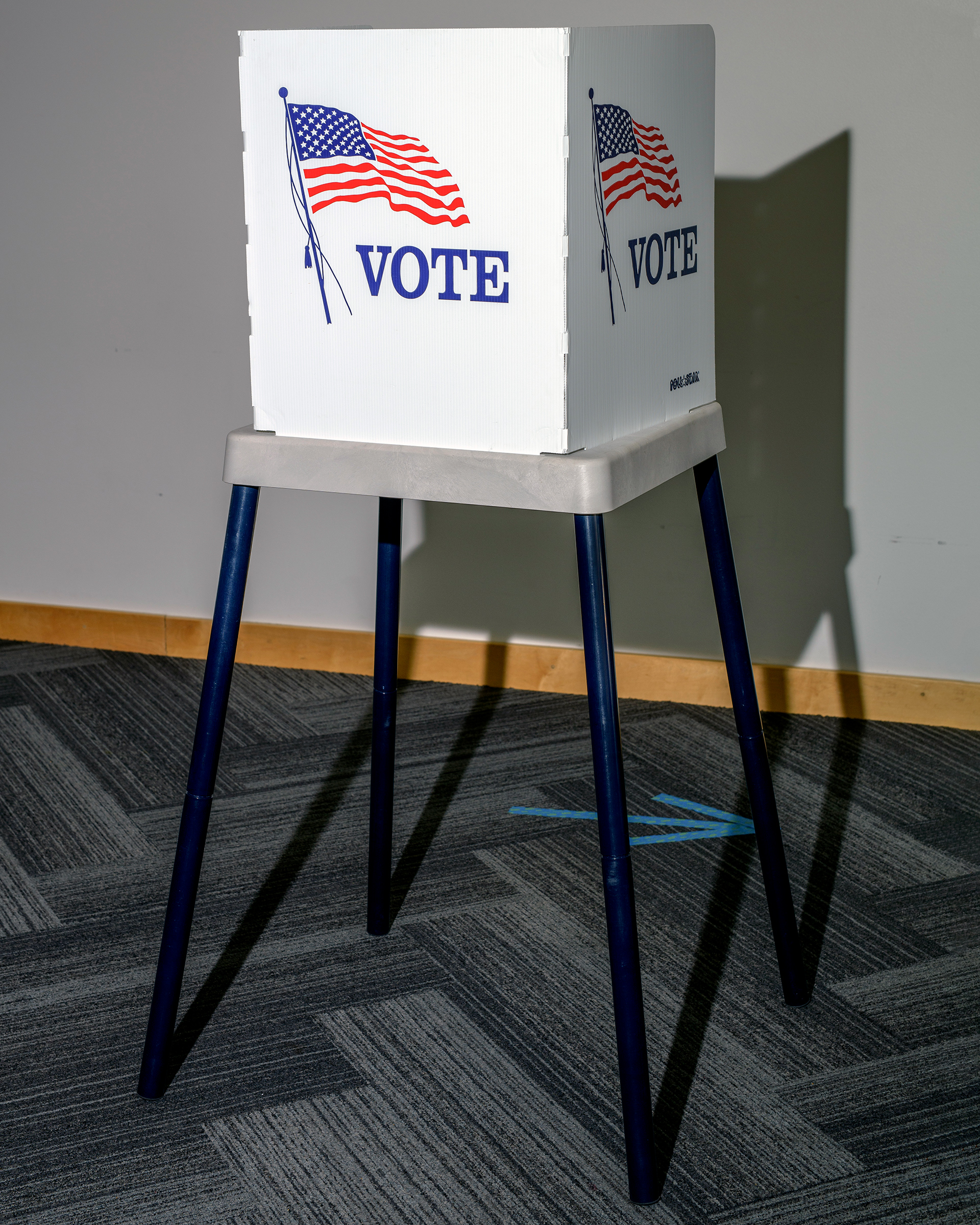
Running for local office isn’t easy. But whenever the going gets tough for Amanda Gonzalez, a Democratic candidate for Jefferson County (Colo.) Clerk and Recorder, she remembers the plot to overturn the 2020 election.
“When I’m downtrodden, when something isn’t going the way I thought it would, that is a huge part of my everyday thought,” says Gonzalez, 37. “There is a set of people who will actively try to undermine or destroy our democracy.”
As the executive director of Colorado Common Cause, Gonzalez has spent much of her career focused on state voting-rights policy. Much of that work involved crafting reforms that local election clerks would implement, including major nonpartisan election-protection efforts in 2018 and 2020. When the Jefferson County Clerk and Recorder—the official in charge of elections in the county—decided not to run again, Gonzalez decided to run for the post herself. “If it’s not me, it’s bad actors,” she says.
Gonzalez is referring to the grassroots right-wing campaign to install election deniers—MAGA hardliners who trumpet former President Donald Trump’s lie that the 2020 presidential election was stolen—in positions that oversee elections at the state and local levels. Inspired by Steve Bannon’s so-called “precinct strategy,” far-right activists have flooded local precincts, signed up en masse to be poll workers, and orchestrated harassment of existing officials.
More from TIME
At the same time, election deniers are winning GOP nominations for key election-related roles in major swing states. According to data compiled by States United Action, a nonpartisan nonprofit devoted to protecting elections, 13 election-deniers are running for Attorney General in 11 states, 19 are running for Secretary of State in 15 states, and 25 election deniers are running for Governor in 15 states as of July 11. More than one-third of Attorney General and Governor races in 2022 include an election denier, and more than half of the candidates for Secretary of State have embraced some form of the Big Lie.
Many Democrats have expressed concern that the national party has failed to muster an effective counter-campaign. So Run For Something (RFS), a Democratic-aligned group that recruits and trains young people to run for state and local offices, has stepped into the breach. Initially formed after Trump’s election to encourage young people to run for state and local office, RFS now focusing much of its energy on recruiting and training pro-democracy candidates to run for often-obscure election positions across the country. So far, the group’s election official recruitment program, called Clerk Work, has recruited nearly 300 people to run for local offices that oversee elections, with 200 of those candidates in swing states like Michigan, Wisconsin, Colorado and Nevada.
“Steve Bannon and a huge part of the right is trying to get their people into these offices, and there needed to be a counterbalance to that,” says Ross Morales Rocketto, co-founder of Run for Something. “The biggest threat is that these folks get on the ballot and are unopposed.”
Read More: The Big Lie Has Been Proven False. Republicans Can’t Shake It.
Run for Something’s Clerk Work is one of few programs focused on combating election denial on the local level, where elections are actually managed. Many of these local offices have arcane or complicated rules, are filled in off-cycle election years, and have complex regulations around fundraising, which make these races difficult for national groups to target. But that widely overlooked work is even more crucial in the aftermath of the 2020 election, with county clerks and other local officials on the receiving end of much of the harassment fueled by the Big Lie.
That targeted harassment has prompted a mass exodus which makes the recruitment efforts especially important. According to a March survey by the Brennan Center for Justice, 1 in 5 local election officials say they’re “very” or “somewhat” unlikely to serve through 2024, and nearly 1 in 3 know another election worker who has left the field because of fears for their safety. More than half are concerned that new colleagues believe Trump’s lie that there was widespread voter fraud in the 2020 election. “We’re really on a precipice here,” says Tammy Patrick, senior advisor to the elections program at the Democracy Fund, a nonpartisan foundation confronting threats to American democracy.
Read More: The Secret History of the Shadow Campaign That Saved the 2020 Election.
Run for Something has reoriented much of their efforts towards recruiting new people for these crucial jobs. Yet Rocketto says donors have been cool to the project. Despite the widespread alarm about the crumbling of democratic institutions, fundraising for the program has been slow. “We could have done more if the funding had come in quicker,” he says.
Gonzalez thinks most people understand the importance of voting rights broadly, but says many voters still don’t understand the importance of their local election officials. “It is a little harder to convince them that their time, talent and treasure should be focused on the clerk race,” she says. “The time to fight for our democracy is now. It can’t just be a few lawyers or a few election officials. It really has to be all of us realizing how important this is.”
More Must-Reads From TIME
- The 100 Most Influential People of 2024
- The Revolution of Yulia Navalnaya
- 6 Compliments That Land Every Time
- What's the Deal With the Bitcoin Halving?
- If You're Dating Right Now , You're Brave: Column
- The AI That Could Heal a Divided Internet
- Fallout Is a Brilliant Model for the Future of Video Game Adaptations
- Want Weekly Recs on What to Watch, Read, and More? Sign Up for Worth Your Time
Write to Charlotte Alter at charlotte.alter@time.com